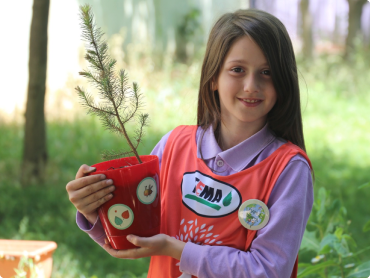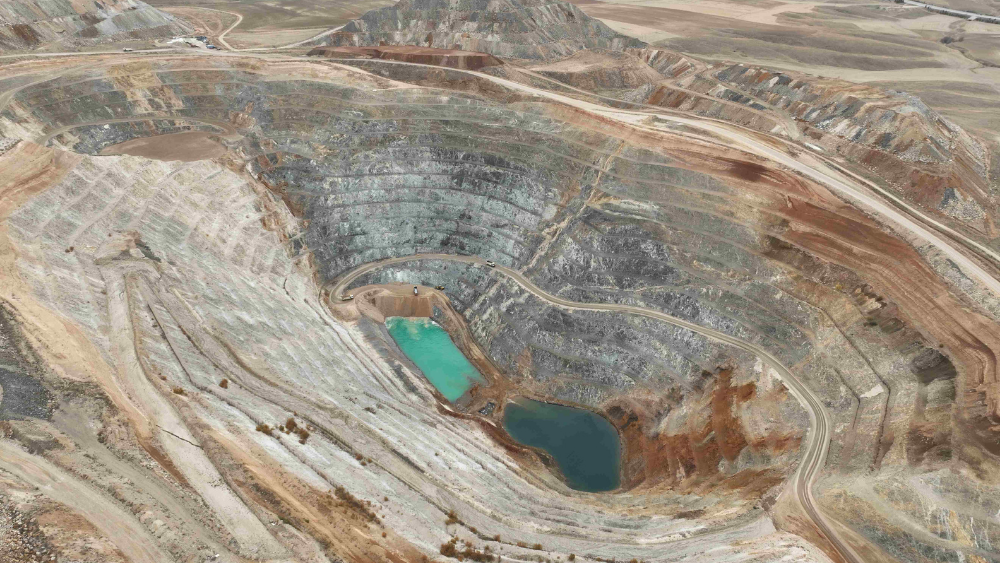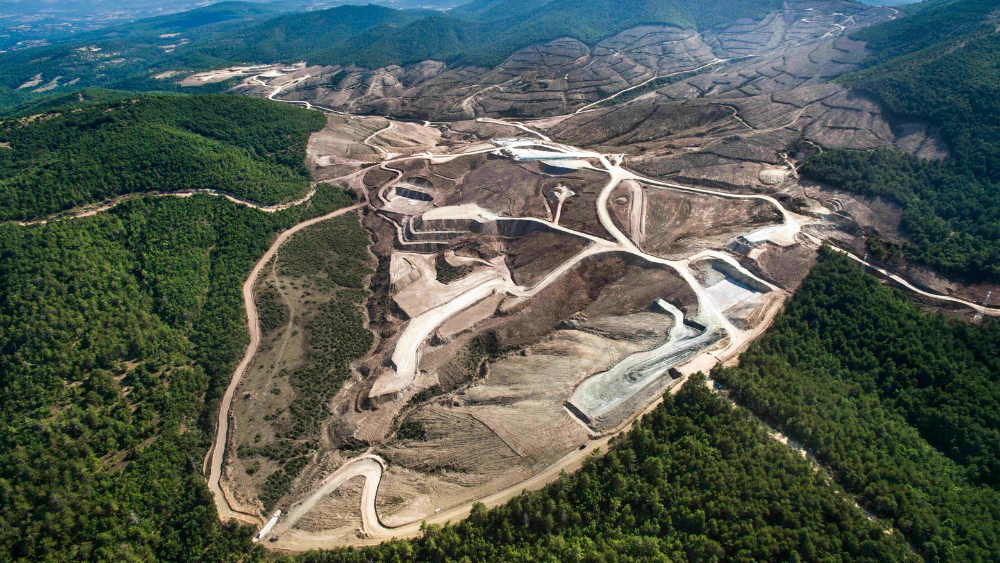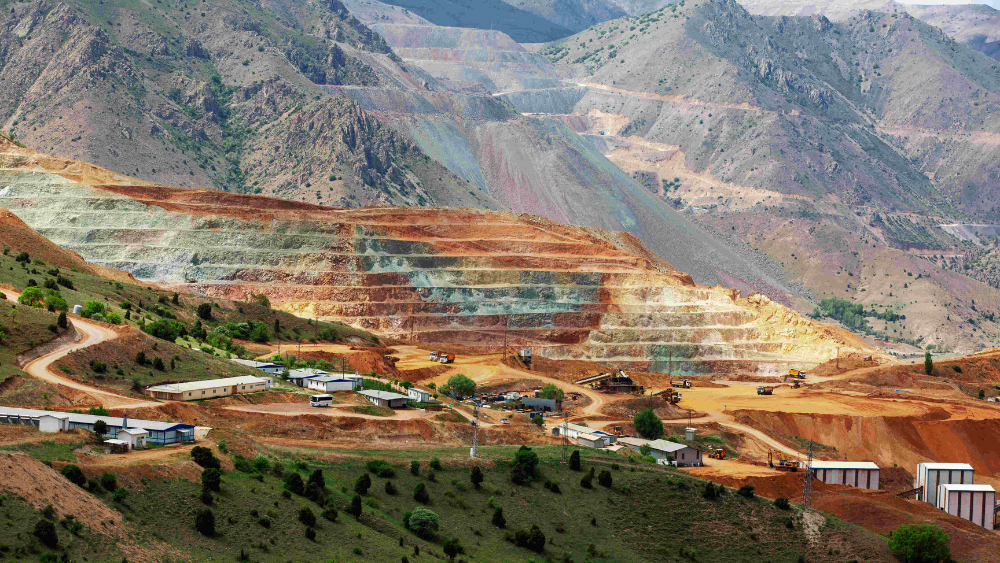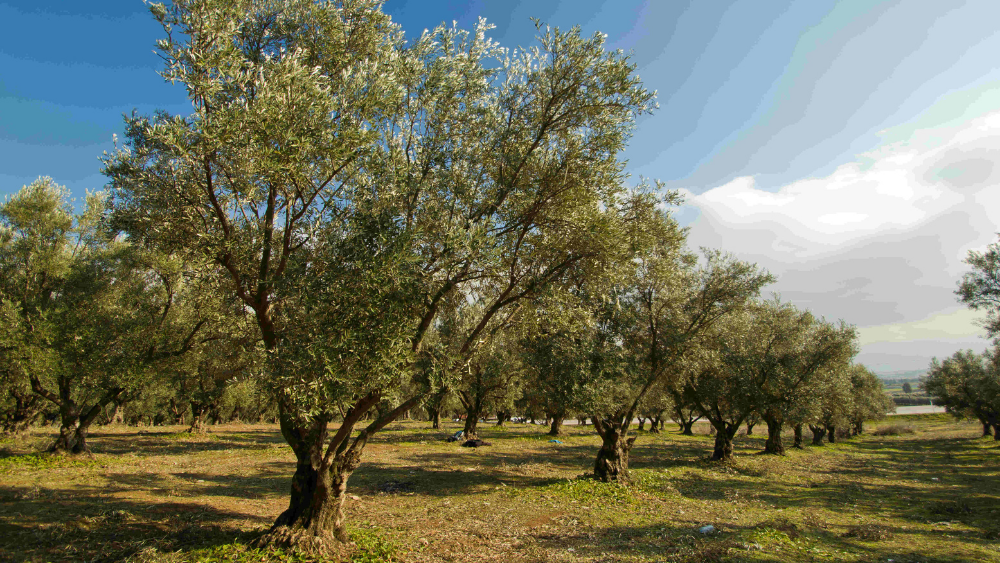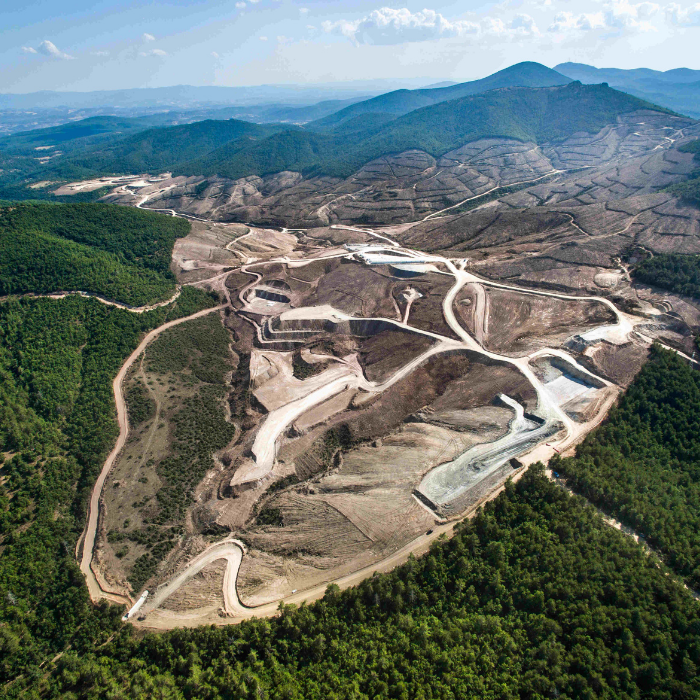The "Bill on the Amendment of the Mining Law and Certain Other Laws," included in the new omnibus bill submitted to the Turkish Grand National Assembly (TBMM), exposes the most valuable natural and cultural heritage sites of our country, from olive groves and forests to agricultural lands and protected areas, to irreversible damage for the purposes of mining and energy investments.
The bill, to be discussed in the TBMM committee on Thursday, June 19 (tomorrow), also envisions amendments to the Mining Law, as well as the Environmental Law, Pasture Law, Electricity Market Law, and the Law on the Use of Renewable Energy Resources for the Purpose of Generating Electricity. Proposed for the purposes of "economic stability", "national interest" and "energy independence", the bill offers a legal framework which deviates from a nature conservation approach and favors investment.
Ms. Deniz Ataç, Chairperson of the TEMA Foundation, emphasized in her statement that the bill not only makes room for investment in certain sectors, but also undermines nature conservation policies and completely ignores the public's, especially local community’s, right to have a voice.
"Super permit" removes all obstacles
Mapping studies by the TEMA Foundation on Group IV mining licenses, conducted since 2019, have revealed that forest areas, agricultural lands, drinking water basins, and cultural heritage sites are under threat from mining licenses. Conducted in 29 provinces, the study demonstrates that an average of 67% of the total area of these provinces is licensed for Group IV minerals.
Ms. Ataç, Chairperson of the Board of Directors of the Foundation, underlined that the proposed "super permit" will remove all obstacles to uncontrolled mining activities, stating, "The new omnibus bill accelerates mining license processes and reshapes permitting mechanisms to benefit investors."
Noting that the bill will specifically establish a "special board" to issue permits for Group IV minerals, strategic and critical minerals, Ataç said, "The authority granted to this board aims to speed up all permitting processes for investors. The same board could also rule to expedite privately owned properties necessary for renewable energy facilities, paving the way for investors. While all these regulations pave the way for investments in areas requiring nature protection, the public interest and environmental impacts are overlooked. During a period in which we have no option other than protecting nature, entitling a specific board to make such critical final decisions have numerous repercussions."
Supervision of forest area to be transferred to Mining Administration
Furthermore, the bill also envisions transferring forest areas where it is allowed to do mining to the General Directorate of Mining and Petroleum Affairs (MAPEG), in which case an institution lacking expertise in forestry would be responsible for monitoring both the damage to the forest and the rehabilitation work undertaken during the mining activities.
Ms. Ataç stated that putting these areas under the supervision of the General Directorate of Mining and Petroleum Affairs would mean ignoring the damage to the forests. She added that entrusting forests to an institution lacking sufficient capacity in forestry related matters poses a significant risk to nature, and that institutions with expertise in the field, such as the General Directorate of Forestry (OGM), should not be sidelined from these processes.
Olive groves are sacrificed
Olive groves are among the most valuable agricultural areas in Türkiye, and they are protected with a special law. Current law prohibits the construction of facilities generating dust and smoke within the proximity of 3 km of olive groves. However, the new regulation effectively removes this safeguard.
Ms. Ataç, Chairperson of the Board of Directors of the Foundation, underlined that the olive groves are sacrificed for coal mining with new regulation and stating, "By incorporating a provisional article into the Mining Law No. 3213, the omnibus bill opens the olive groves in Muğla to mining to supply coal to thermal power plants. These areas will now be open to mining and operation. By declaring the olive groves 'movable property,' these production and cultural heritage sites are effectively turned into property. This approach threatens not only Muğla but all olive groves across Türkiye in the future."
Automatic approval in 3-4 months; protected areas open to investment
Ataç stated that the bill submitted to the Turkish Grand National Assembly poses a serious threat not only to forests and olive groves, but also to protected areas where mining activities should be completely banned. She particularly highlighted the regulations regarding natural and historical protected areas. She underlined that the provision included in the bill stating ‘it will be deemed that permits have been granted if no response is received for applications within 3-4 months’ is extremely concerning and stated, "It is unacceptable that it will be deemed that permits have been granted within 3-4 months in natural and historical protected areas. This would undermine the role of the institutions responsible for nature protection. These areas should be completely closed to mining activities. Furthermore, considering an operation permit granted to an activity that has already obtained an exploration license disregards the different processes and potential environmental impacts involved in exploration and operation activities, and therefore poses serious risks."
However, the bill also threatens investment in protected natural and cultural assets such as agricultural lands, pastures, wetlands, national parks, and protected areas through amendments to key laws such as the Pasture Law, Soil Conservation Law, and Environmental Law.
Finally, the narrowing of the definition of "overriding public interest" and practices such as "concurrent permits" weaken the legal status of protected areas. This leads to an approach that disregards the natural balance, rural life, and citizens' right to participation.
The Environmental Impact Assessment (EIA) process is undermined
Environmental Impact Assessment (EIA) processes are one of the most fundamental tools for protecting nature and human life. This process already has numerous shortcomings in Türkiye. However, it is further undermined by the omnibus bill. The bill allows to initiate incentive, approval, and permit processes without waiting for a positive EIA decision.
Furthermore, the removal of the "EIA Not Required" decision in Environmental Law No. 2872 creates significant uncertainty regarding which activities will be assessed and how. These changes could further weaken available mechanisms aiming to protect nature.
Underlining the importance of EIA processes, Ataç, said, "EIA processes were already failing to function properly. Now they are almost completely bypassed with this regulation. This paves the way for projects to operate without considering their impacts on nature, agriculture, health, and local life. Furthermore, with the 'concurrent permit' practice, incentives and permits can be granted to projects without even waiting for a positive EIA decision. This clearly means there is no way back in the destruction being caused to nature. We are concerned that no environmental impact assessment will be conducted for some projects."
Final decision of Türkiye; We Must Protect Nature!
This bill is not merely a technical regulation; it poses a threat to nature, culture, agricultural production, rural life, and social values.
Declaring olive groves movable property, transferring forests to mining institutions, undermining environmental impact assessment (EIA) processes, and opening protected areas to investment could cause to an irreversible decline in natural resources and production capacity of Türkiye.
Ms. Deniz Ataç, Chairperson of the Board of Directors of the TEMA Foundation, stated that the bill threatens not only the environment but also the local community, the right to life of future generations, and food and water security. She called on the public to take responsibility and to communicate their views to the Turkish Grand National Assembly:
"The decisions made today will also determine our future. Once our olive groves, forests, pastures, and water resources are lost, they cannot be restored. Protecting nature is our shared responsibility. Therefore, as the TEMA Foundation, we call on all segments of society, decision-makers, and civil society to oppose this regulation and protect our olive groves, forests, agricultural lands, and our country's natural and cultural heritage."
You Know, You Are Responsible! The TEMA Foundation
